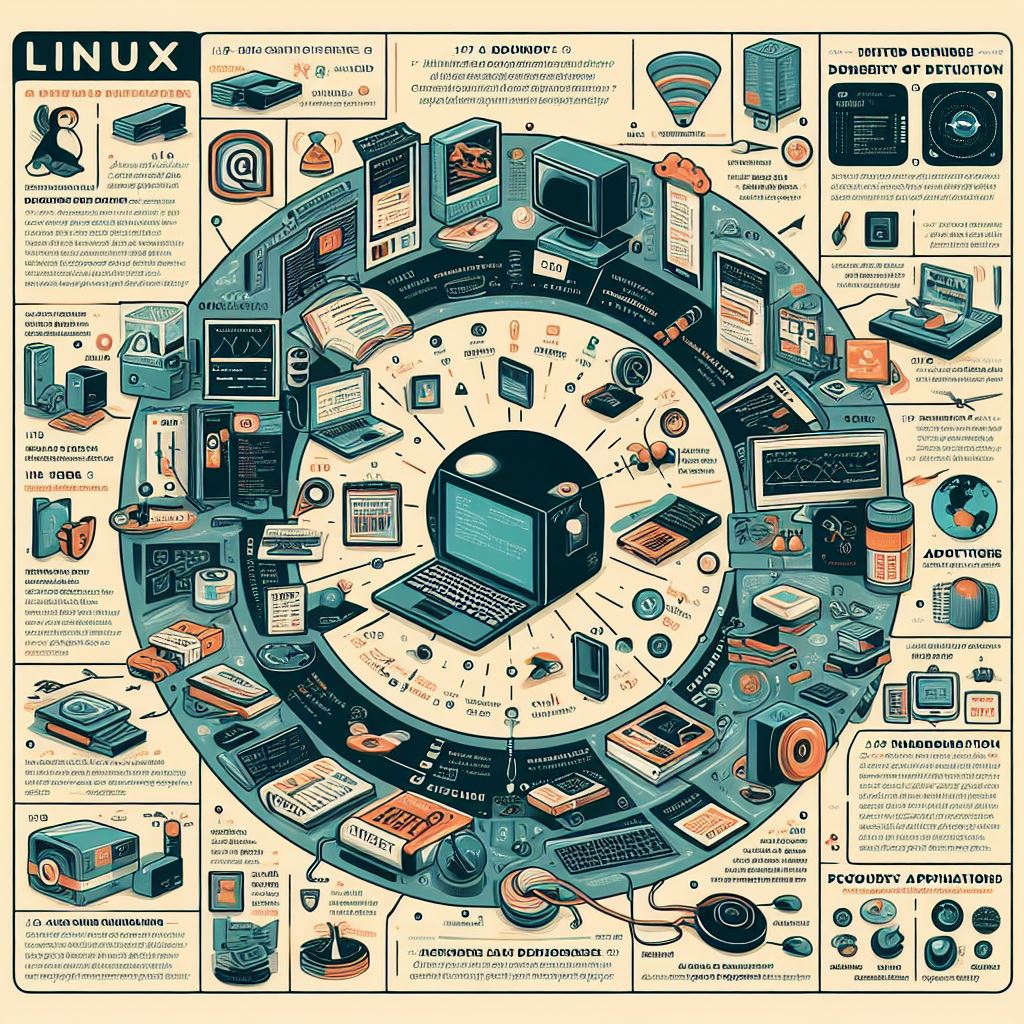Linuxia stands as a testament to the power of open-source software and collaborative development. In this comprehensive guide, we will delve into the world of Linuxia, exploring its origins, features, distributions, and its impact on the computing landscape.
Understanding Linuxia
Linuxia is a concept of freedom, collaboration, and personalization, not just another operating system. The Linux kernel, created by Linus Torvalds in 1991, is its fundamental component. Linuxia is open-source, which means that anybody can study, alter, and share its source code without restriction, in contrast to proprietary operating systems.
Origins of Linuxia
The story of Linuxia traces back to Linus Torvalds, a Finnish computer science student who sought to create a Unix-like operating system that could run on personal computers. Torvalds released the first version of the Linux kernel to the public on October 5, 1991. Since then, Linuxia has evolved into a robust ecosystem, powering servers, desktops, mobile devices, and embedded systems worldwide.
read more about Everything You Need To Know Nippyfile
Key Features of Linuxia
Linuxia boasts a plethora of features that have endeared it to users and developers alike:
- Open Source: Linuxia encourages cooperation and creativity by making its source code publicly available.
- Security: User permissions, encryption, and frequent security upgrades are just a few of Linuxia’s strong security features.
- Personalization: Linuxia gives users the ability to personalize every facet of their computer experience, ranging from the desktop interface to the fundamental system components.
- Stability: Linuxia is renowned for its stability and reliability, making it the preferred choice for mission-critical applications and servers.
- Performance: Linuxia is lightweight and efficient, capable of running on a wide range of hardware, from embedded devices to supercomputers.
Diving into Linuxia Distributions
Linuxia is very appealing because of its wide variety of distributions, or “distros.” In order to accommodate various user preferences and use cases, each distribution provides a distinctive combination of features, package managers, and desktop environments.
Popular Linuxia Distributions
- Ubuntu: Ubuntu is one of the most popular Linux distributions, known for its user-friendly interface, extensive software repositories, and long-term support releases.
- Fedora: Fedora is a cutting-edge distribution sponsored by Red Hat, offering the latest software updates and technologies for developers and enthusiasts.
- Debian: Debian is known for its stability and adherence to free software principles, serving as the foundation for many other distributions, including Ubuntu.
- Linuxia Mint: Linux Mint provides a polished and user-friendly desktop experience, with a focus on simplicity and ease of use.
Specialised Distributions
In addition to mainstream distributions, Linuxia also offers specialized distros tailored to specific use cases:
- Kali Linuxia: Kali Linux is a popular choice for penetration testing and cybersecurity professionals, packed with tools for ethical hacking and security auditing.
- Raspberry Pi OS: Designed for the Raspberry Pi single-board computer, Raspberry Pi OS provides a lightweight and optimised environment for educational and DIY projects.
- CentOS: CentOS is a community-driven distribution derived from the sources of Red Hat Enterprise Linux (RHEL), offering a stable and free alternative for enterprise users.
The Impact of Linuxia
Linuxia has had a profound impact on the computing landscape, shaping industries, driving innovation, and challenging the dominance of proprietary software.
Industry Adoption
Linuxia powers the backbone of the internet, with a significant portion of web servers running Linux-based operating systems such as Ubuntu, CentOS, and Debian. Companies and organisations worldwide rely on Linuxia for its reliability, security, and cost-effectiveness.
Innovation and Collaboration
The open-source nature of Linuxia fosters a culture of collaboration and innovation, with developers from around the world contributing to its development. Projects such as the Linux kernel, GNOME, KDE, and Apache have benefitted from the collective efforts of the open-source community.
Diversity and Inclusivity
Linuxia embodies principles of diversity and inclusivity, welcoming contributions from individuals of diverse backgrounds and skill levels. The Linux community prides itself on its inclusivity and support for newcomers, fostering an environment where everyone can learn and contribute.
read more about Everything You Need to Know About Moviestowatch.tv
Conclusion
Linuxia represents more than just an operating system; it symbolises a community-driven approach to software development and a commitment to freedom, collaboration, and innovation. As we continue to embrace the principles of open source, Linuxia will remain at the forefront of technological advancement, inspiring future generations of developers and users alike. Whether you’re a seasoned sysadmin, a curious enthusiast, or a newcomer to the world of Linux, there’s never been a better time to explore the vast ecosystem of Linuxia.











